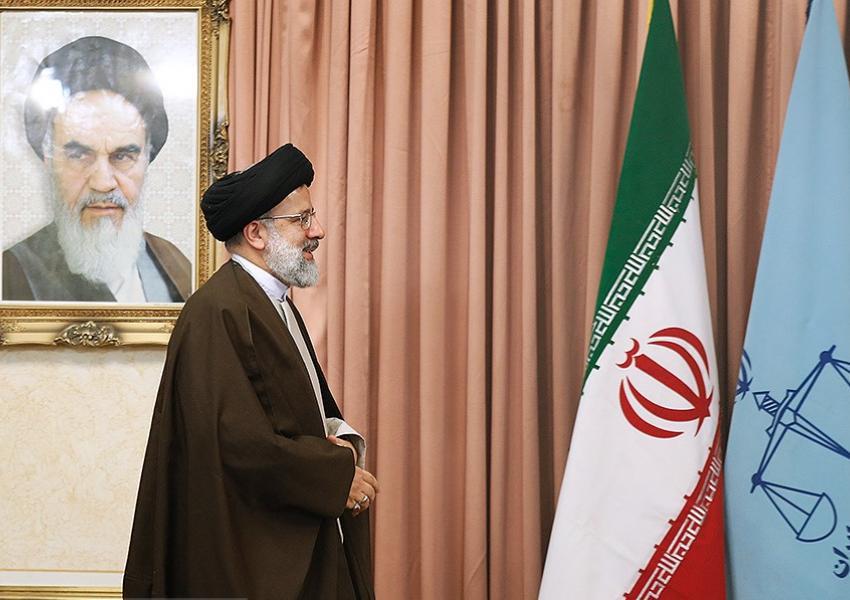
Iran's Judiciary Announces Public Jury Trials For Political Prisoners – But Will It Make Any Difference?
Iran’s senior judicial figures have announced they will implement a law requiring the separation of political and security offences, with political prisoners tried in open jury courts.
Chief Justice Ebrahim Raeesi told the weekly meeting of senior judiciary officials on Monday September 14 that he would insist on different procedures for the two kinds of crime - while Ali Alghasi-Mehr, the Tehran Prosecutor, announced that five individuals had been indicted for “political offenses” and would be tried by public courts in the presence of a jury rather than in secret by Revolutionary Courts.
This belated move to implement the Political Offenses Act of 2016 is unlikely to affect most prisoners held on grounds considered ‘political’ by international human-right groups, including Amnesty International. Most of such prisoners are tried for ‘security’ crimes in camera by Revolutionary Courts, and in such cases the Political Offenses Act would not apply.
Many political prisoners in Iran are charged with “acting against national security”, “propaganda against the regime”, “collusion to act against national security”, “insulting the Supreme Leader”, and espionage.
The Political Offenses Act defines a “political crime” as one committed “against the administration, political bodies and domestic and foreign policies and with the aim of reforming the country’s affairs.” The law also guarantees that a political prisoner is detained with peers rather than with ordinary criminals, will not be subject to solitary confinement for more than 15 days, has access to media and books, and does not have to wear prison uniform.
Article 168 of the Iranian Constitution, adopted soon after the 1979 Islamic Revolution, stipulates that “political and press offenses” should be tried “openly in the courts of the Ministry of Justice before a jury… [whose members are selected as] stipulated by law in accordance with Islamic criteria.”
But it took 37 years for the Iranian parliament to pass a law defining “political offenses,” thereby paving the way for overtly political trials. The law passed parliament in January 2016 and supposedly came into effect on May 16, 2016 after being ratified by the Guardian Council, a constitutional watchdog. But implementation has been long delayed without explanation, with trials of those considered internationally as prisoners of conscience and political prisoners still conducted by Revolutionary Courts.
Human rights bodies will now monitor whether investigating bodies and prosecutors can stymie the Political Offenses Act simply by trumping up charges to include ‘security-related’ crimes. There has been wide international condemnation of the execution on 12 September 12 of 27-year-old wrestler Navid Afkari in what the office of UN High Commissioner for Human Rights called “the latest execution in a series of death penalty sentences handed down in the context of protests in 2018 and 2019.”



